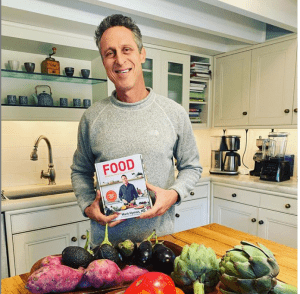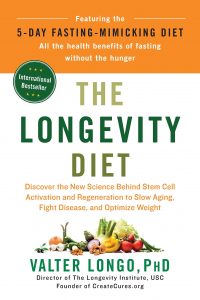Dr. Jeff and I are always learning! In our field of health, research takes an average of 17 years to make it to the common, accepted practices. That’s too long, in our opinion. Plus a lot of good information can get lost in the cacophony, can’t it?
We thought we’d start a monthly “What We are Reading at Healthy Connections” blog, to share some mini book reviews of our current faves.
1) Food: What the Heck Should I Cook? by Mark Hyman.

Admittedly – this book just came out this week, so we haven’t read it yet! – but we did read Food: What the Heck Should I Eat? and it provides helpful guidance for anyone wanting to sort through the noisy food confusion out there. We trust his cook book is a solid and practical follow up, and like what we’ve read about it.
Here at Healthy Connections, we believe that food is something we “do” to our bodies each day. Bringing mindful awareness to how and what we eat – and how our bodies respond! – can significantly impact our health.
That all sounds well and good, but the ‘how to’ of healthy food preparation can be challenging to say the least.
Our colleague and mentor Dr. Mark Hyman (bestselling author of many other functional health books) has just released his latest book: Food: What the Heck Should I Cook?
Eating healthy doesn’t mean you need to deprive yourself. His book includes a wonderful rotation of nourishing meals – a great way to foster healthy connections with yourself and your loved ones. He reports his recipes contain “ultra-delicious farmaceutical foods to heal your body and your soul.” How can we not love this?!
Watch Dr. Hyman’s FB video to learn more about his book!
2) When the Body Says No: Exploring the Stress-Disease Connection by Gabor Mate, MD.
I read this book when I was diagnosed with my second autoimmune condition 2 years ago, in my own search to understand the stress-illness connection. Dr. Mate’s book “provides transformative insights into how disease can be the body’s way of saying no to what the mind cannot or will not acknowledge – and how we can heal.”
After meeting with a client yesterday and exploring the possible underlying stress mechanisms for her recent onset of debilitating illness, I picked the book off my shelf and dove into it again. For anyone open to and interested in the mechanisms, mysteries and magic around stress – and our capacity to manage it well to optimize healing – this book provides ample evidence and hope. Remember – you can join our free Mindful Monday: Practices for Peace and Health at any time.
3) The Longevity Diet by Valter Longo, PhD.
Have you heard about the benefits of fasting? It’s another new/old health “fad” that has some serious science building around it. Dr. Longo heads the Longevity Institute at the University of Southern California, and has been involved in cutting edge research using the FMD – fasting mimicking diet – to improve all sorts of health outcomes. Fasting improves our cellular clean-up, gives our gut a chance to rest (historically, humans have undergone regular intermittent periods of fasting, and our bodies adapt beautifully), and even creates the release of new stem cells following the 5 day low-calorie fast.
His most studied type of fast is not actually NO food, it is a 5 day minimal calorie diet (approx. 1,100 kcal Day 1 and 800 kcal Days 2-5). Dr Jeff, ever curious and ever ready to try something new!, has gone through the 5 day FMD program twice this year, and will do a third in December. His comments? “I feel so great on and after the Fasting Mimicking Diet. It’s crazy! My sleep improves, my heart rate variability goes way up, and my mental clarity sharpens. I’m going to do this regularly for the rest of my life!”
He’s sold, can you tell? To make it easier for people, Dr Longo has worked with his team to come up with a packaged kit called ProLon (Promoting Healthy Longevity) Therapy, and we are starting to provide this in our clinic. Let us know if you are interested! We’re thinking of hosting a “Group Fast” in January for people who are interested in having some support and guidance with this program. Check out the book, read the research, and let us know if you’re interested.

